How does Lawn Mower Ignition Coil Works | Everything You Need To Know
by Lee Safin
Every lawnmower comes with an ignition coil. By maintaining the voltage, keeps the system up and running. The ignition coil works as a source for the spark plug to acquire voltage from the battery. This makes the mower continue to run by producing the spark.
But the question is, how does lawn mower ignition coil works?
Most new lawnmowers have a Magnetron ignition system. There is a common principle for all modern lawnmowers that use ignition coils. The spark plug is powered by the ignition coil, which provides a high voltage to achieve a spark.
In this post, we are going to go for an in-depth explanation of how does lawn mower ignition coil works. After going through this article, you will have a clear idea about how does lawn mower ignition coil works. Let’s dive in!
Contents
- How Does Lawn Mower Ignition Coil Works?
- How Do You Check A Lawnmower Ignition Coil?
- How Do You Fix An Ignition Coil On A Lawn Mower? Step by Step Guide
- How Do You Test A Lawn Mower Ignition Coil? Step by Step Guide
- What Causes A Lawn Mower Coil To Fail?
- What Causes No Spark On Lawn Mower?
- Why Is My Lawn Mower Turning Over But Not Starting?
- What If I Don’t Replace An Ignition Coil?
- Wrapping Up

How Does Lawn Mower Ignition Coil Works?
Are you wondering how does lawn mower ignition coil works? During the 1980s, most lawnmowers used to run on induction ignition systems mainly. Over time lawnmower was updated, and the Magnetron ignition system replaced the induction ignition system.
Magnetron systems can create current without the help of mechanical points. The spark plug receives this current to produce sparks.
So, how the Magnetron ignition system produces current without the help of mechanical points? A transistor pair controls the switching and ensures current for the spark plug.
So, why latest lawnmowers have a Magnetron ignition system instead of other ignition systems? Compared to other ignition systems, the primary benefit of the Magneto ignition system is that energy is generated without the need for external sources.
1. Electro-Magnetic Induction
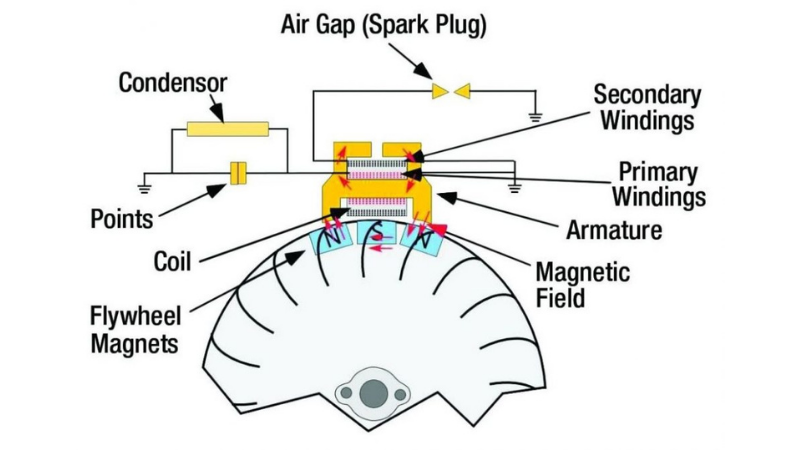
Everyone knows that without an ignition system, you can’t run a lawnmower. The ignition system of a lawnmower helps produce sufficient electric current to leap over the space between the electrodes of a spark plug and run it smoothly. Finally, sparks are produced for the ignition of fuel in the combustion chamber by this system.
As part of knowing “How does lawn mower ignition coil works?” you should also know which component helps the ignition system to do it. Can you guess?
Well, by using the phenomenon of magnetic flux or flux density, the system can operate. A physicist named Michael Faraday found out this theory in 1831.
He also explained the relationship between magnetism and electricity and detected magnets could generate electric current when they pass over coils of wire. The current is basically a result of pushing the electrons back and forth in the cable.
The coil works as a medium to pass the electric current from a corollary. At last, a magnetic field is developed from the system, which can induce a current in the next coil.
2. Increasing Voltage
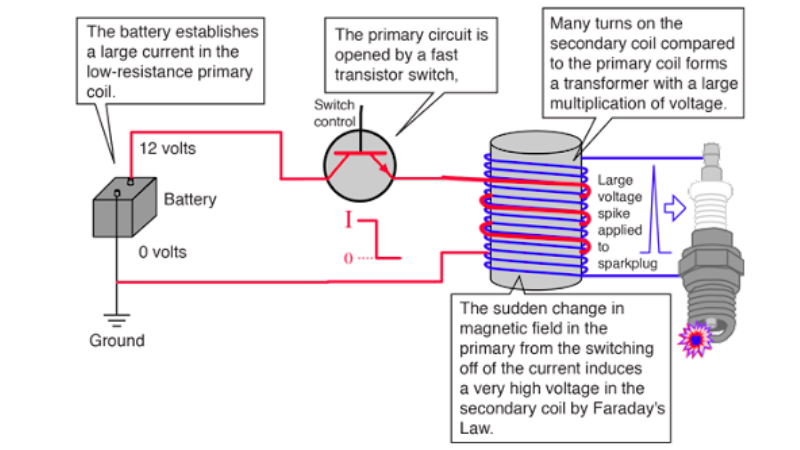
As you already know, each latest lawnmower is equipped with a Magnetron ignition system, and a flywheel supports a Magnetron ignition system.
A flywheel makes contact with the engine crankshaft, and its job is to provide power from the motor to the machine smoothly.
The sluggishness of the flywheel resists and calms variations in the speed of the machine.
The edge of the flywheel is joined with a sole fixed magnet. When the flywheel rotates every single time, a coil of copper wire is sent by the magnet, which helps produce an electric current in the engine.


However, you have already known there is a space between the spark plug electrodes to ensure proper voltage. The electric current generated due to the flywheel rotation is not strong enough to pass this gap.
That’s why the ignition system features a transformer, which transforms voltage. It works as a secondary coil while rotating more to pass the electric currents. As a result, more voltage is generated because more rotation occurs in the second coil.
3. Transistor Switching Mechanism
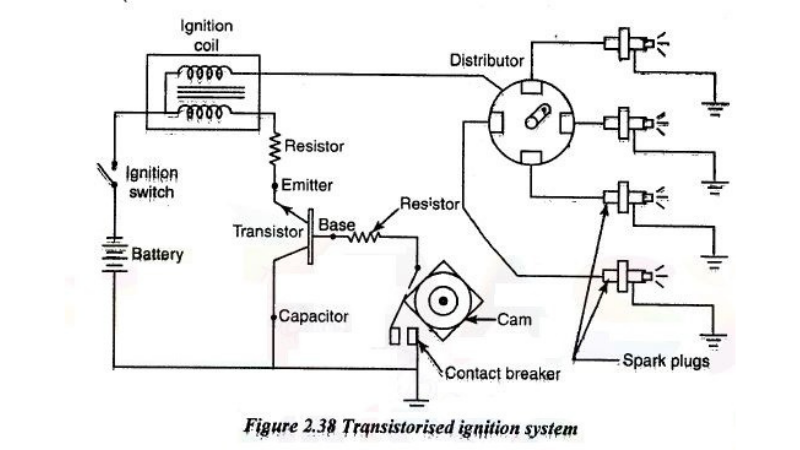
As a part of knowing “How does lawn mower ignition coil works?” it is necessary to learn how transistor switching system works.
The ignition system of a lawnmower features a switching mechanism. It helps to turn off the power to the plug and not constantly spark and disrupt the piston cycle. So, the primary task of a magnetically sensitive transistor switch is to control the flow of power.
The transistor switch inside the lawnmower includes a spinning breaker. This component makes a fleeting contact with a single electrode to shut down the circuit.
On the other hand, if your lawnmower has a magnetron system, it is mainly supported by a Darlington transistor. This transistor combines a pair of transistors, which delivers a very high DC current gain.
When the trigger winding occurs, the first transistor identifies the current. Then, it helps open the second transistor, and a free flow of current occurs from the second transistor to the main coil.
4. Operation of a Magnetron Ignition
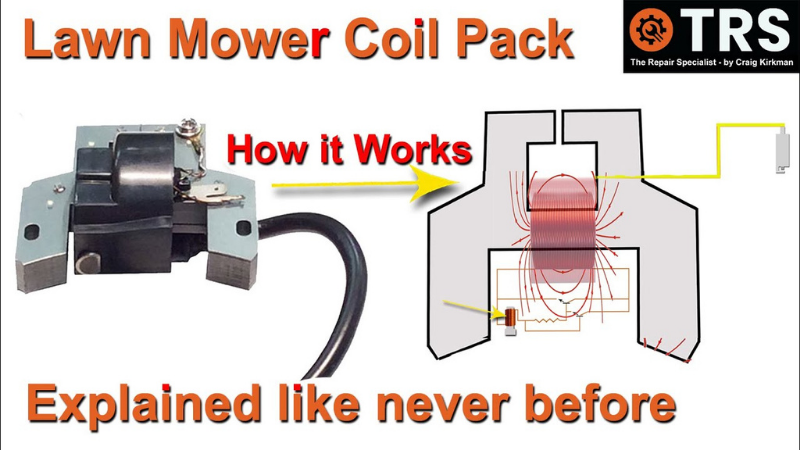
While wondering about “How does lawn mower ignition coil works?” do you know the basic principle of a Magnetron ignition? A lawnmower that has a Magnetron ignition system includes a heavy wheel. It spins continuously, either manually or electronically, for storing rotational energy.
Each spin helps to generate voltage, and it directly enters inside the main coil. Once the voltage goes to the secondary coil, the voltage increases. The reason is that the turn increases more than 53 times from the main coil to the secondary coil.
The increased voltage generates approximately 10,000 amps, and it is enough to pass over the gap between the spark plug electrodes.
Once the piston compressed the fuel-air blend, the generated spark ignites the fuel. Then it causes the piston to move and push the flywheel through additional revolution. It will ultimately create a self-sufficient cycle to fuel the engine.
These are the most crucial points you want to note down about “How does lawn mower ignition coil works?”
How Do You Check A Lawnmower Ignition Coil?
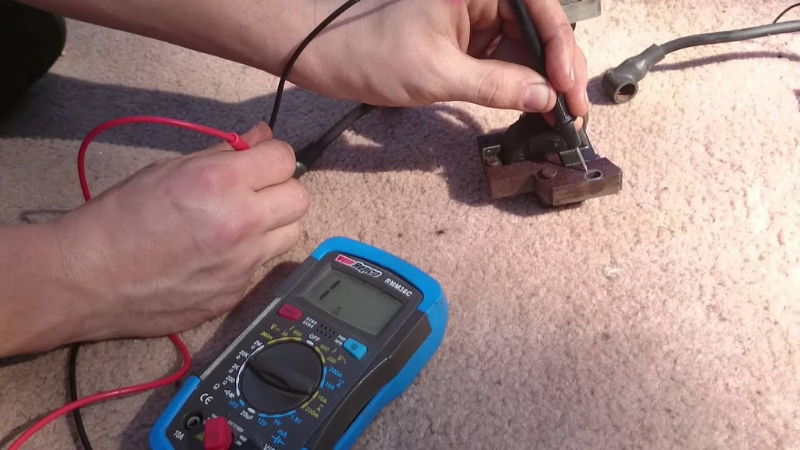
How do you check a coil? Fixing a small ignition coil is not a hassle as you think. By looking at its conditions and checking its internal functions, you can figure out whether the ignition coil has become faulty or not.
Just follow the steps to get a clear view of this question: — how do you check a coil?
1. Problem Diagnose


If you have any Diagnostic equipment, use it to check out Diagnostic trouble codes and identify a particular problem area. Now, give a comparison of the value between the faulty coil and a well-function coil.
2. Check Damage
Now inspect the internal coil conditions if you can see issues, such as —
| Serial No | Signs of damage |
|---|---|
| 1 | Cracking issues in the case |
| 2 | Broken issues in anti-rotational tabs |
| 3 | Electrical cables become loosed or damaged |
3. Inspect Spark Plug
No products found.
No products found.
Spark plugs are one of the primary components of a lawnmower. That’s why you want to take out the spark plug and examine its current conditions. Make sure you notice their cables and whether there is a perfect gap between the spark plug electrodes.
4. Supply Of Voltage To The Ignition Coil
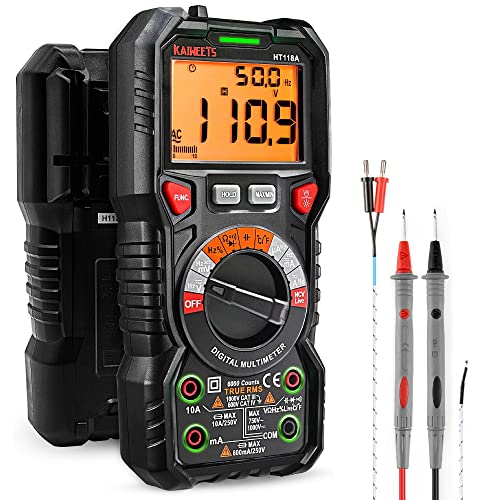

Now, use a multimeter to measure the supply of voltage to the ignition coil. You should note down if the voltage surpasses 10.5V.
5. Primary And Secondary Coil Circuits
Now, use the multimeter again to check out the circuits of the primary and secondary coil. For the primary coil, it should have resistance between 0.5 and 1.3 ohms. However, for secondary coil, it should have resistance between 2,500 and 5,000 ohms.


The coil is shorted if you notice zero reading. If it exceeds the ohms rating, it means an internal open circuit exists. Most times, if the coil becomes damaged, it will have less than 0.5 ohms. In that case, replacing the components is the best decision.
Those are all the important points you want to consider while wondering about “How do you check a coil?”
Read More – Why Is My Lawnmower Revs Up And Down? How Do You Fix An Idle Surge?
How Do You Fix An Ignition Coil On A Lawn Mower? Step by Step Guide
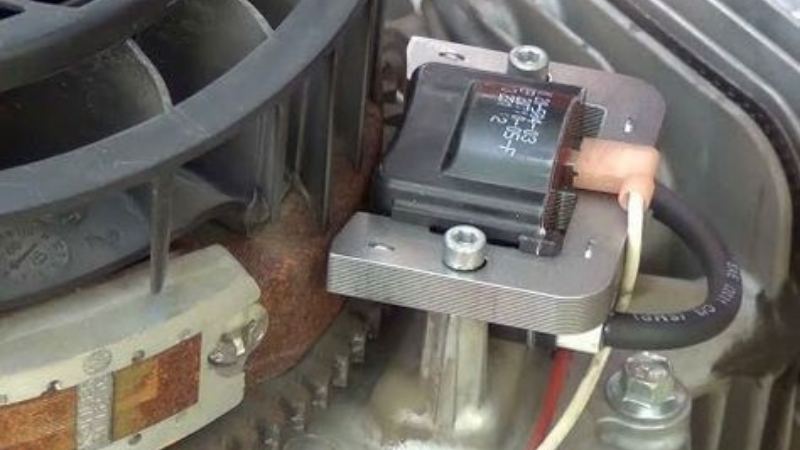
Are you wondering about this question: how do you fix an ignition coil on a lawnmower? We have already discussed how to check an ignition coil condition.
What did you find out? Is your ignition coil gets damaged? If yes, you want to replace it. Unless you change it, there is no point in knowing about “How do you fix an ignition coil on a lawnmower?”
Plus, we are assuming you are not a professional expert to fix the different parts of the ignition coil of a lawnmower.
Hence, you need to either take it to a nearby shop store to repair the ignition coil or replace it of your own with a new one. Since an ignition coil has a low price, replacing it is better to make your lawnmower fully functional.
Here we mention how to replace an ignition coil as you want to learn about “How do you fix an ignition coil on a lawnmower?”
Step 1 – Turn off The Ignition Switch
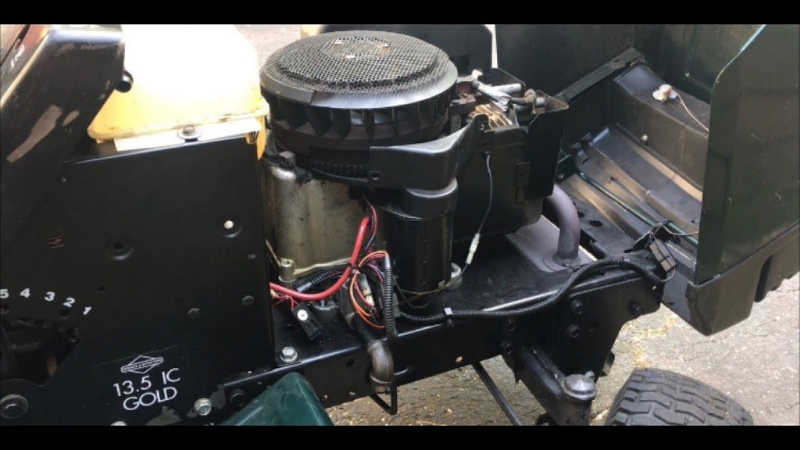
First of all, you want to turn off the ignition switch and give your hands to the ignition coil. Loosen all the nuts and bolts before removing them from the engine.
Also, don’t forget to disconnect the power connector. Now, it will be easy to take out the ignition coil from the engine.
Step 2 – Apply Some Tune-up Grease
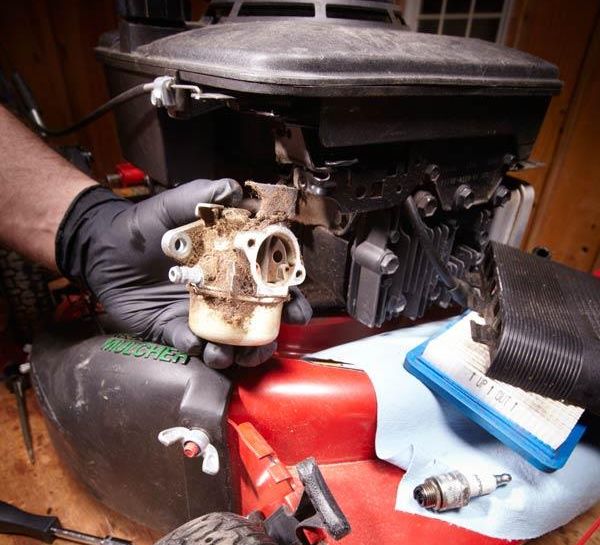
Do you instantly place the new ignition coil, or is there something that needs to do? Before installing it, you want to apply some tune-up grease at the coil’s base, which will fight off greatly against moisture and prevent corrosion. If you notice your spark plug also gets damaged or is not working properly, it will be better to replace them together.
Step 3 – Slide the Intact Coil into The Case
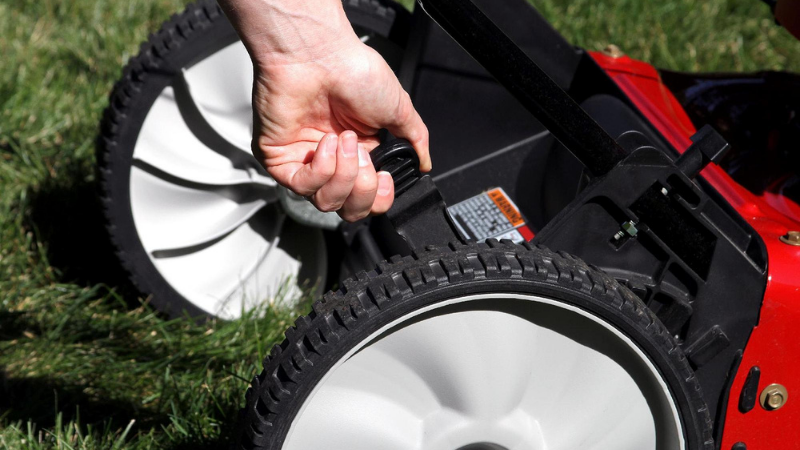
Next, you want to slide the intact coil into the exterior case. Tighten the nuts and bolts appropriately without overdoing it. After that, fasten the electric connector to start the mower.
Step 4 – Recheck
The answer to the question of “How do you fix an ignition coil on a lawnmower?” is already cleared. But to become 100% confirm about it, you want to recheck whether any faulty code is still appearing. Also, do other tests to ensure no issues in the engine system.
So, these are all the steps you want to check while wondering about “How do you fix an ignition coil on a lawnmower?”
How Do You Test A Lawn Mower Ignition Coil? Step by Step Guide

Are you wondering about this question: how do I know if my lawnmower ignition coil is bad? You can figure out whether your lawnmower ignition coil is bad or not by looking at its conditions.
One of the most common symptoms you will notice is that your lawnmower is becoming hot while operating it. It may also shut off automatically after running it for a few seconds.
Read More – Why Is My Lawnmower Carburetor Leaking Gas? How Do I Fix A Leaking Lawn Mower Carburetor?
You cool it down and start the mower again. When the engine gets hot again, it turns off automatically. So, you must be thinking, how do I know if my lawnmower ignition coil is bad? Right?
The only option to know whether your lawnmower ignition coil is bad or not is by testing it. So, how do you test a lawn mower ignition coil?
If you don’t know how to test a lawnmower ignition coil, check out these steps:
Step 1 – Disconnect The Ignition Boot
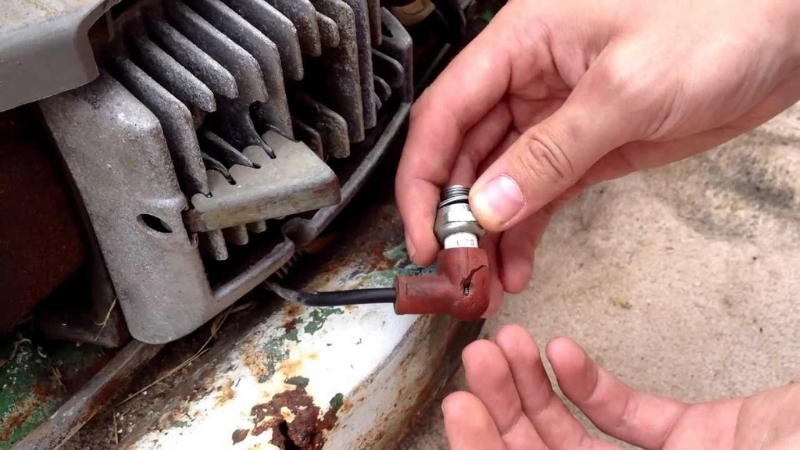
First of all, you want to disconnect the ignition boot (
) from the spark plug and attach it to a spark tester.

Step 2 – Make the Connections
Now, make a connection between the open-end side of the tester and the spark plug boot by plugging the wire. Make sure you connect the boot properly. No loose movements!
Step 3 – Start The Lawnmower
Now, start the lawnmower while it is at normal temperature. Check out the display of the tester to find out its performance.
Can you see a normal spark while the engine is on? In addition, cutting some grass to check the mower’s performance is another thing you can do. Did your lawnmower shut off again while cutting the grass?
Step 4 – Check The Intensity
Check out the intensity of the spark plug while you are cutting the grass—a particular dissimilarity between when the mower is cold and when it is hot.
If you don’t see any spark or too little spark, you want to replace the ignition coil. However, if there is a decent amount of spark, your lawnmower might be having some other issues, which prevent it from running smoothly.
It is the perfect method to test a lawnmower ignition coil. Hopefully, you have learned about this question: how do I know if my lawnmower ignition coil is bad?
What Causes A Lawn Mower Coil To Fail?
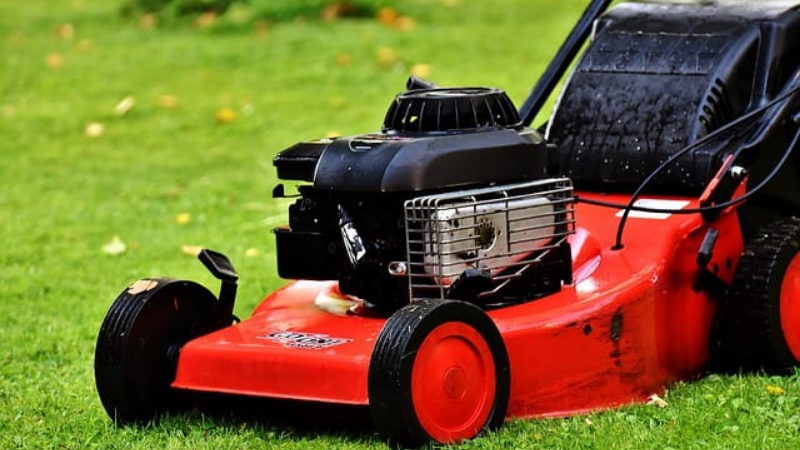
Are you failing to figure out the main cause of your lawnmower coil failing? What causes a lawnmower coil to fail? The failure of a lawnmower may occur for several reasons. Here are the few common reasons you can note down:
1. Defective Spark Plugs
No products found.
No products found.
Defective spark plugs will force your lawnmower engine to run on increased output. Hence, you want to make spark plugs free from damage. Otherwise, it may cause an ignition coil failure.
2. Overheating
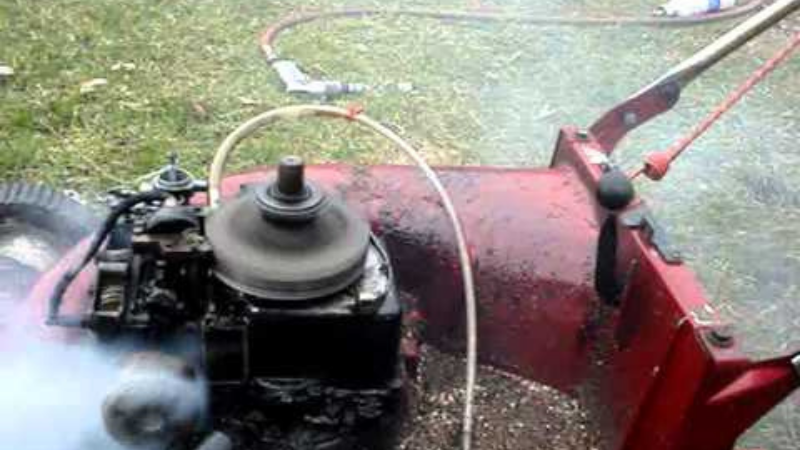
Have you experienced any overheating issues in the lawnmower engine? It may prevent the ignition coil from supplying electricity.
3. Fuel Inefficiency
Have you noticed if your mower engine is consuming more fuel than before? This is called fuel inefficiency, which may lead to ignition coil failure.
When this happens, your mower struggles to run itself smoothly as an insufficient amount of power reaches in the spark plug.
4. Lawnmower Stalling
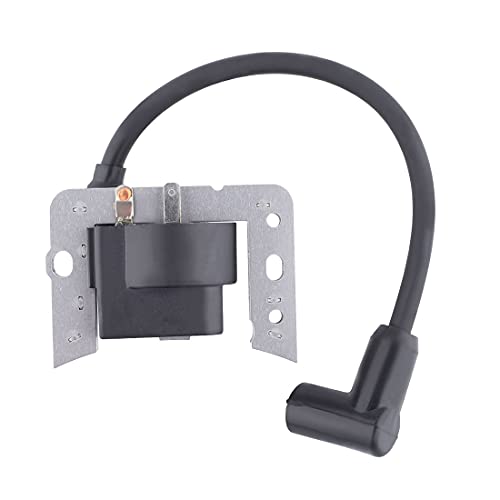

An ignition coil failure may lead to lawnmower stalling. When this happens, you will notice your lawnmower is sparking irregularly to the spark plugs. As a result, the engine may shut down automatically after starting it.
5. Quality Deterioration
It is important to keep your lawnmower ignition coil in a fresh condition. Degradation of insulting may occur between the primary and second coil over time because of ignition coil failure.
So, these are all the main points you should consider when you want to know about “What causes a lawnmower coil to fail?”
6. Lawnmower Backfiring
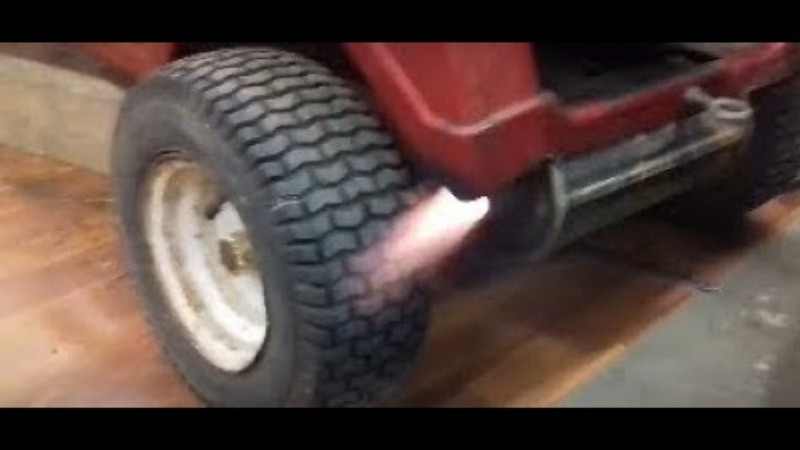
Do you feel bucking, jerking, or stumbling while running your mower? So, when does a lawnmower backfires? Generally, a combustion event is supposed to occur inside the combustion cylinders. If it happens outside, it may be because of ignition coil failure.
Read More – How Does A Lawn Mower Engine Work? How to Fix It?
7. Excessive Vibrations
Does your lawnmower vibrate excessively? The ignition coil insulation and windings might be broken because of it.
What Causes No Spark On Lawn Mower?
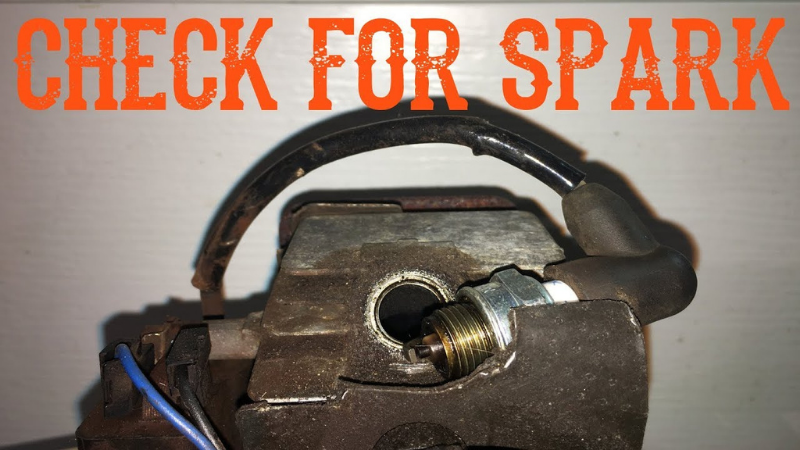
If your lawnmower doesn’t fire any spark, you can’t run the machine smoothly. So, what causes no spark on lawnmowers? It may happen for several reasons:
| Serial No | Causes of no spark |
|---|---|
| 1 | Defective plug |
| 2 | Defective wire |
| 3 | Defective on/off switch |
| 4 | Defective ignition coil |
1. Defective Plug


Are you 100% confirmed if your spark plug doesn’t have any issue? No worn-out issues! If your lawnmower spark plugs are damaged or broken, they won’t fire to generate sparks.
How will you know your lawnmower has spark plug issues? In that case, you want to use the spark tester to check out whether it is firing spark while the engine is on.
If not, replacing the component is essential. We have already mentioned how to test spark plugs conditions above.
Aside from here are the most common issues you will see in a bad spark plug:
| Serial no | Signs of bad spark plugs |
|---|---|
| 1 | Hard to start the engine |
| 2 | Shortage of perfect acceleration |
| 3 | Fuel inefficiency |
| 4 | Engine misfiring or surging |
| 5 | Rough Idling |
| 6 | Internal damage |
| 7 | Annoying fuel smell |
2. Defective Wire


Have you checked whether your spark plug connector and cable are okay or not? If the terminal connector of the spark plug wire is damaged or has become loose, it will cause no spark on the lawnmower. Keeping your lawnmower free from defective spark plug wire will ensure regular spark.
3. Defective On/Off Switch


Each latest lawnmower is equipped with a bail level at the handlebar to turn off or on the engine within seconds. There are five parts to the bail level. Various kinds of problems may occur in these parts. Here are they:
| Parts name | Problem You May See |
|---|---|
| Cable | Stretched or broken cable |
| Bail/throttle lever | Defective lever, unconnected or lack of adjustability |
| Coil control wire | Loose coil control wire |
| Stop/start switch | Defective or damaged |
| Flywheel Brake Assembly | Lack of adjustability for the cable |
4. Defective ignition coil


An ignition coil either works smoothly or doesn’t work at all. However, sometimes you may see it works for seconds and turn off automatically. When the engine becomes hot after a few seconds or minutes, it shut down mechanically.
In that case, you can test out the ignition coil using a tester. We have already mentioned how to test ignition coil conditions above.
So, these are all the possible things you want to consider if you are wondering about “What causes no spark on lawnmower?”
Why Is My Lawn Mower Turning Over But Not Starting?

A lawnmower is supposed to start after turning it over. If not, there might be some issues. So, why is my lawnmower turning over but not starting? It can be related to several problems, which may be unknown to you.
Here are we are mentioning all the possible causes of “Why is my lawnmower turning over but not starting?”
1. Insufficient Fuel Supply
Have you ensured enough fuel supply for the mower? If the fuel filter becomes damaged or clogged up, it will prevent a smooth flow of fuel. As a result, the mower may turn over but fail to start due to lack of fuel supply.
2. Spark Issues
Is your lawnmower getting sufficient spark from the engine? If not, you may struggle to start the machine.
So, why does sparking deficiency occurs? It will happen for different reasons, such as —
- Defective spark plugs
- Bad ignition circuit
- Broken ignition switch
- Unbalanced security system
3. Low Compression


All lawnmower engines include cylinders, which should have a sufficient amount of pressure. If they have low compression, you will struggle to start the engine.
Low compression may occur due to a blown head gasket or mower valve. Stopping the leaking gases issue is essential. In that case, you want to change the leaking part.
4. Power Supply Issues
If your lawnmower has a bad or failing starter motor, you may struggle to start the engine. A bad or failing starter motor consumes a large number of amps to crank the engine.
As a result, the remaining amps are not enough to support the ignition system and fuel injectors. When this happens, abnormal sounds appear after turning it over.
5. Unfresh Gasoline


How long have you used the same gasoline? Unfresh gasoline deteriorates its quality and lacks combustibility when it remains idle for a long time. After a certain time, it will lead to a clogged carburetor.
So, how long can gasoline stay fresh? As per professional mechanics, it is better to change gasoline after 30 days. It will ensure optimal performance for the engine and prevent the clogged carburetor issue.
6. Dead Battery
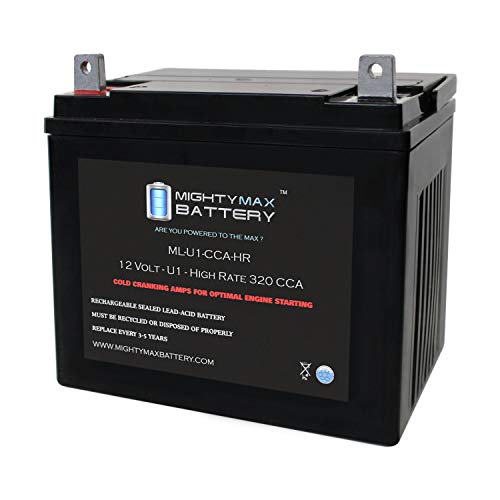

Most lawnmower batteries are durable and long-lasting. But you may don’t know when they become dead due to no early signs. In that case, you can use a voltmeter to see the battery’s performance.
So, how will it measure its performance? For example, if your lawnmower battery has 12 volts, the reading should be close to 12 volts. If it is too less, you want to replace the battery soonest.
7. Dirty Components
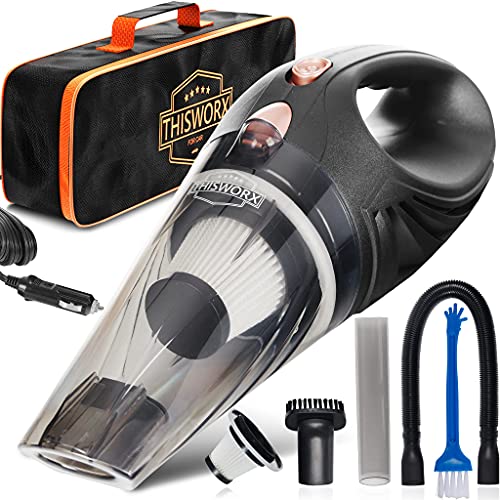

Lawnmowers include various components. Though you can’t clean all parts, some parts need to be regularly cleaned, especially if you used them heavily.
Parts like spark plugs, carburetor, air filter, and fuel filter are necessary to clean daily. If not, dirt, grease, and other contaminants will build up inside the parts and prevent them from functioning smoothly.
So, these are all the possible causes when you want to know about “Why is my lawnmower turning over but not starting?”
What If I Don’t Replace An Ignition Coil?
We have already learned how does lawn mower ignition coil works? But do you know what will happen if you don’t replace it when it is necessary?
The first step you need to do knows when it is the perfect time to change your lawnmower ignition coil.
Delaying the replacement will hamper the overall performance of your mower engine. In addition, it will lack sufficient power and won’t run smoothly or not at all.


Moreover, using a defective ignition coil for a prolonged time causes various issues for other components.
In fact, many garden experts recommend not using your lawnmower if you think it has some problems with the ignition coil. It may seriously damage the engine, and even professionals can’t repair it anymore. Hence, you have no option but to buy a new one.
Wrapping Up
Like other vehicles, a lawnmower has so many components, and an ignition coil is one of the most important parts of this machine. It is important to know how does lawn mower ignition coil works.
Knowing how does lawn mower ignition coil works will help you to decent any issue that occurs inside it. As a result, you can take quick action and save the machine from any extra damage. Hopefully, you have earned enough knowledge to know everything about lawnmower ignition coils. Thanks for reading!
Last update on 2023-01-28 / Affiliate links / Images from Amazon Product Advertising API
 |
 |
 |
 |

About Lee Safin
Lee Safin was born near Sacramento, California on a prune growing farm. His parents were immigrants from Russia who had fled the Bolshevik Revolution. They were determined to give their children a better life than they had known. Education was the key for Lee and his siblings, so they could make their own way in the world. Lee attended five universities, where he studied plant sciences and soil technologies. He also has many years of experience in the U.S. Department of Agriculture as a commercial fertilizer formulator.
Thoughts on "How does Lawn Mower Ignition Coil Works | Everything You Need To Know"
 |
 |
 |
 |
Get FREE Gardening Gifts now. Or latest free toolsets from our best collections.
Disable Ad block to get all the secrets. Once done, hit any button below
 |
 |
 |
 |